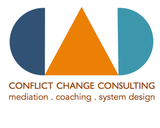Ask a party who is experiencing both processes and you will hear many responses.
Mediation is an opportunity for the parties. At the heart of practice, is a belief that people have within them the best solution to their dispute. The mediator will work with both parties to assist them to recognise this solution.
At the heart of arbitration practice is a belief that an arbitrator who is an expert in law or fact or arbitration has the best answer to the dispute.
In terms of process, mediation is party-centric and is adaptable to the needs and wants of the parties. If the parties want to have a simple conversation or if they decide to include lawyers, experts and documents, that is their choice. A mediator should guide the parties to the best process for them to have a meaningful dialogue but at the end of the day it is up to the parties.
Arbitrations are conducted in accordance with a formalised set of rules (e.g. ICC, UNCITRAL, HKIAC) and will typically include procedures for hearings, submissions and evidence. This makes arbitration much more similar in process to litigation.
Arbitrations will result in a decision from the arbitral panel. The parties are bound by the award made by the arbitrator as they have submitted to the arbitration. These awards are highly enforceable thanks to international treaties.
Mediations may result in a settlement agreement, but they may also end in deadlock. The parties may not settle their dispute as the settlement must be consensual and voluntary. Unlike arbitration, the mediation will not guarantee a result.

